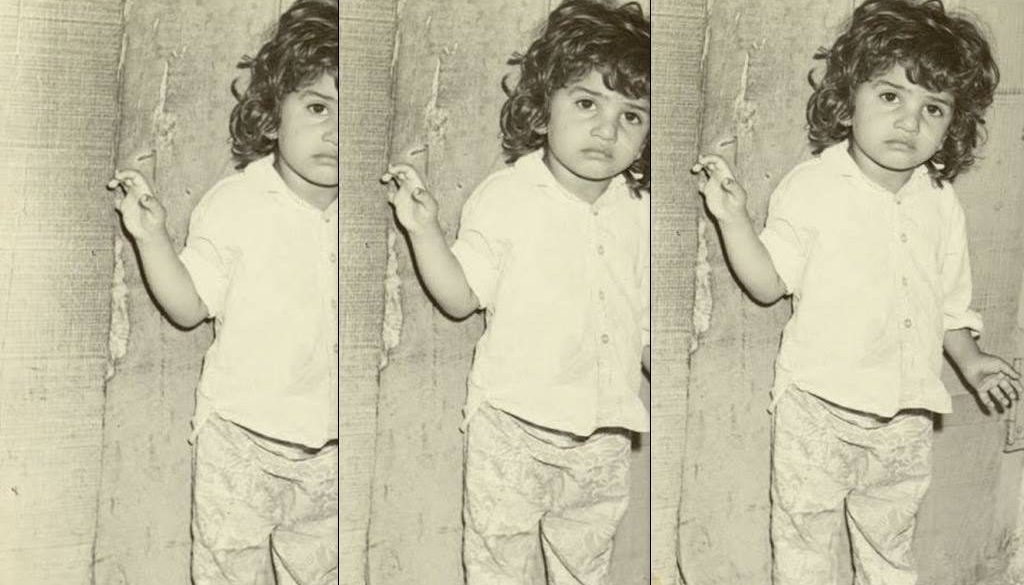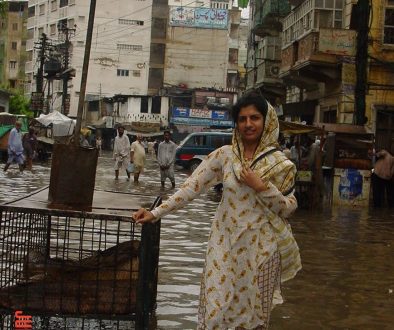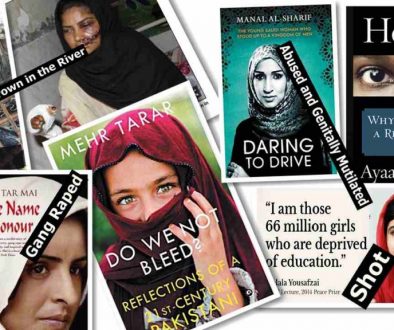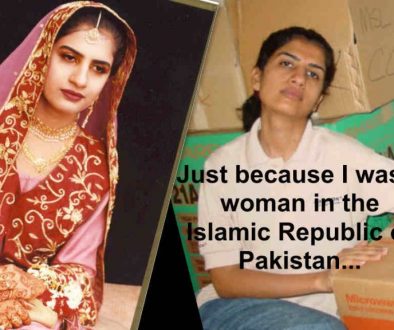I could have been an Extremist
“If you say the word ‘pig’, Allah will not accept your prayers for 40 days.”
Sounds strange, right?
In the slums of Karachi Pakistan, I grew up listening to phrases like these, presented to me as commandments of God.
The Allah of Islam, portrayed through the Muslim scholars (imams) of my time, had a myriad of rules for us to follow.
“Even if a husband is alcoholic, violent, a drug addict or a criminal, he is still a Gift of God to his woman.”
“Saying ‘no’ to your husband when he wants sex, is a sin.”
Obedience was a pre-requisite for being a Muslim and questioning was considered blasphemous. We were expected to believe, and we were expected to follow.
The punishment of not following any of these commandments was to end up in Hell – an unimaginable place with sprays of boiling water, waves of raging flames and nowhere to hide and run.
To my young mind, these commandments didn’t seem complete. There was something missing, but I wasn’t sure what that was. The only ‘authentic’ source of the truth was Quran – The Holy Book, which was in Arabic. And, although a translation was available, we were taught that the language of Allah was Arabic and the only way to understand His true word was to learn the language.
I prayed five times a day (mostly) and recited Arabic verses one after another while performing various physical movements required in prayer. I didn’t understand it. I just believed that Allah understood because I was speaking His language.
I never achieved the trance-like meditative state that the imams talked about when one prayed. My thoughts wandered during prayers, and I couldn’t wait for it to be over. It was a duty that I had to perform – otherwise, I was destined for Hell.
In school, I did have a few years where they taught us Arabic, but we never learned enough to be able to understand the Quran in Arabic. I tried to read the translation in the Quran, but my young brain was unable to interpret these complex phrases. Even when I understood, I was always left with a sense of guilt that I was trying to understand the Holy Book from a distance.
As a woman, I was never allowed inside a Mosque. I felt jealous of men who could go to mosques and be part of gatherings. They had the privilege to listen to the imams first-hand and learn from their wisdom while we women took care of our domestic chores, cleaned and cooked. What we normally got was second-hand information or the radio. But it was only a one-way conversation. It seemed that the Allah was hell-bent on staying away…
I missed His love.
I missed His mercy and generous heart.
My mother was rebellious, and she questioned many of these teachings but to my innocent brain, she seemed to be the only one doing so and, even though she made sense, I felt sinful. There was only one way to get close to Him: to commit myself to an Islamic school and stop going to a normal school. The Islamic schools in the slums were only dedicated to learning the Quran and Hadith (based on the life of Prophet Muhammad) and didn’t focus on other subjects. I was too scared of my mother to bring it up and I continued to feel guilty about my sinful path.
And then I heard the Golden word of ‘Jihad’ – a perfect way towards salvation. Imams of my time told us that, if we commit ourselves to Jihad and died in the name of Allah, we will be given the status of ‘Shaheed’ (martyr). The status of ‘Shaheed’ is the most coveted status in Islam because anyone who achieves this status goes directly to heaven and all their sins are forgiven by Allah.
A free ticket to Heaven – No Questions Asked!
And the best part was that I could continue to live my life in sin until I could find my salvation, be a jihadi and then die. Life wasn’t all that exciting to me anyway and if I could go to Heaven, all my problems would be solved.
All I had to do was figure out how to do ‘jihad’. This wasn’t easy. The imams told us that jihad meant dedicating one’s life to Allah and it could take many forms. It was hard to die though just by being kind to people. The best way to become a ‘Shaheed’ was to spread Islam and fight against infidels (non-believers).
Infidels, it seemed, were the most despised bunch of people. Imams used to tell us that Allah will not accept any good deed by any infidel because they don’t believe in Him. They were the perfect target.
Luckily, there was no war going on; my mother was too wise to let me go to a war; the violence within my extended family was limited to beating women and children and I couldn’t create any other opportunity to die as a ‘Shaheed’ – but I really wanted to.
Since that time, I have lived in Singapore, Australia and now, Christchurch New Zealand. I have realised that what the imams told me all my life in the name of ‘Islam’ wasn’t really Islam. It was patriarchy and power using religion as a tool to keep women shamed and enslaved. I was able to experience first-hand how respectful the Westerners were. I received more respect from these so-called non-believers than I ever did living in Pakistan.
‘Religion’, it seemed, was the biggest divider and it stopped me from getting close to people. Taking off these ‘blinkers’ was the biggest gift I ever gave to myself and I regained my humanity, independent of any religion, race or gender.
I wonder how many of us take-off our blinkers. How many of us believe in our faith so blindly that we categorically label everything else ‘wrong’? Just like the priest at a friend’s baptism condemning all ‘non-baptised’ to Hell and the white supremacist gunman, targeting Muslims, during the Christchurch terror attack.



